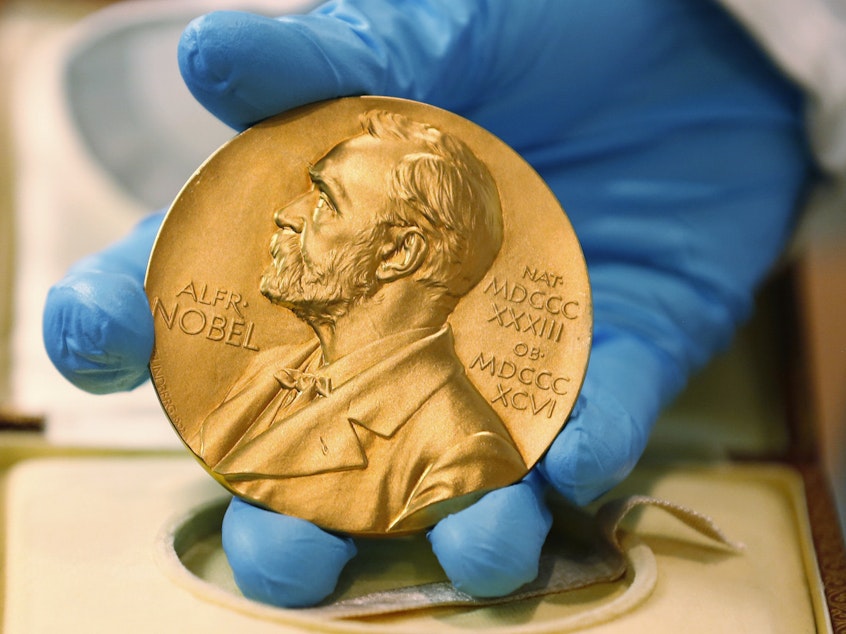The Nobel Prize in physics honors work on climate change and complex systems

The Nobel Prize in physics was awarded this year for work on finding order in chaos — some made by humans and some found in nature.
Half of the prize went to Syukuro Manabe and Klaus Hasselmann for their studies showing how humans were changing the climate on Earth. According to the prize committee, it was Manabe, now at Princeton University, who built one of the first climate models in the 1960s that explained how human-produced carbon dioxide could warm the planet.
"It's a physics prize and what we are saying is that the modelling of climate is solidly based in physical theory and well-known physics," said Goran K. Hansson, secretary general of the Royal Swedish Academy of Sciences.
Hasselmann of the Max Planck Institute for Meteorology in Hamburg, Germany, followed up about a decade later with work showing that computer simulations such as Manabe's could reliably predict the course of the climate, even though day-to-day weather remained unpredictable beyond about a week into the future. He then went on to figure out how humans' influence on the climate could be teased out of the chaotic noisy fluctuations of day-to-day weather data.
Giorgio Parisi of Sapienza University in Rome was awarded the other half of the prize for work on a much smaller scale than planet Earth. Parisi studies materials where metals like iron and copper are mixed together. The iron atoms act like tiny magnets, and trying to figure out how those magnets line up led Parisi to discover hidden patterns. Those patterns, as it turned out, can be applied to many other fields of science, including neuroscience and machine learning.
"I was not expecting [to win], but I knew there was some non-negligible possibility," Parisi said in a phone interview accompanying the prize announcement.
When asked whether the prize was meant to send a message about climate change, the newly minted laureate was unequivocal: "I think it's urgent," he said. "It's clear that for the future generations we have to act now in a very fast way." [Copyright 2021 NPR]



